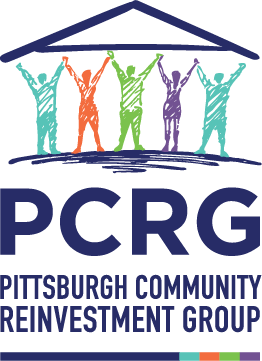State budget passes
Last month Gov. Josh Shapiro signed a $47.6 billion budget for the fiscal year 2024-25. As part of the negotiations, legislators agreed to dip into the state’s reserve fund to balance the budget— leaving about $10.5 billion untouched. Here are some wins:
Neighborhood Assistance Program (NAP). The tax code included legislation by Rep. Aerion Abney (D-Allegheny) and Sens. Gene Yaw (R-Lycoming) and Nick Miller (D-Lehigh) expanding the NAP from $36 Million to $72 Million and increasing the corporation investment cap to $2.5 Million.
Pennsylvania Housing Affordability and Rehabilitation Enhancement Fund (PHARE) cap raised to $100 million over the next 4 years. PHARE is one of the most utilized affordable housing programs administered by the Pennsylvania Housing Financing Agency that expands low-income housing and promotes homeownership.
The Historic Preservation Tax Credit will be raised from $5 million to $20 million.
Main Street Matters program received $20 million.
Short-term rentals
State Rep. Lindsey Powell (D-Allegheny) hosted a House Democratic Policy Committee hearing on short term rental properties and their impacts on neighborhoods.
Lawrenceville United Executive Director David Breingan participated in the panel and discussed how short-term rentals have impacted Lawrenceville, especially since the home values have increased in the destination neighborhood. While there have been responsible owners of short-term rentals, calls to regulate these properties continue at the local level through a registry, as well as imposing short-term fees on owners to operate them in communities. Our Corporate Housing Study was cited throughout the hearing, highlighting the uptick in corporate-owned properties in Allegheny County — many being used as short-term rentals by out of state companies.
The hearing was timely because the City of Pittsburgh and the Department of Permit and License have called for public comment on the Residential Housing Rental Permit Program. Comments are due by September 30.
LOOP becomes law
Sen. Jay Costa’s (D-Allegheny) legislation to help long time homeowners has become state law. Gov. Shapiro signed Act 53, Longtime Owner Occupant Program (LOOP) which will allow municipalities in Allegheny County to establish property tax relief programs for longtime owner occupants that live in neighborhoods with increasing property values. Sen Costa and various other Allegheny County elected officials have been pushing for LOOP legislation in Harrisburg for years.
August recess
Pittsburgh City Council will be on break until August 28. When they return, we expect them to take up eviction protection legislation that was introduced by Councilwoman Deborah Gross and supported by the Housing Justice Table (HJT). The HJT’s eviction protection initiative would provide legal aid, rental support and mediation assistance with landlords for qualifying individuals. Money for the program would come from the Stop the Violence Fund.
HOME Program
As members of the Homeownership Alliance, a national organization dedicated to increasing access to homeownership and long-term affordable housing, we joined in a comment letter to HUD on proposed reforms to the HOME Investment Partnerships Program. The HOME program provides states, municipalities, and non-profit developers with grants and technical assistance to expand the supply of affordable housing for low-income residents. Grants can go towards the rehab of and homebuyer assistance for owner-occupied properties – as well as the development of affordable for sale or rent as well as operational support for non-profit groups that qualify as Community Housing Development Organizations (CHDO’s).
The HUD-proposed regulatory changes address many of the obstacles faced by the developers, program participants and applicants. Specifically, the changes clarify the definitions of homeownership assistance, increase flexibility for CHDO’s and Community Land Trusts as well as improve home inspection requirements.

